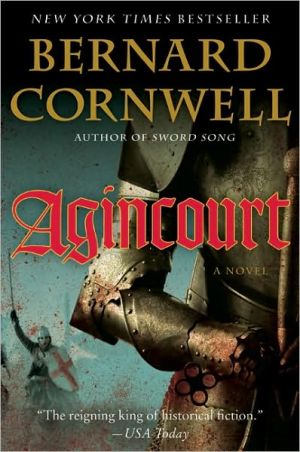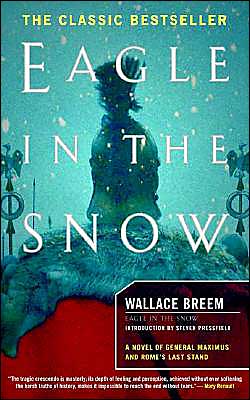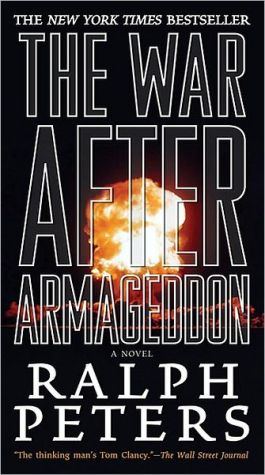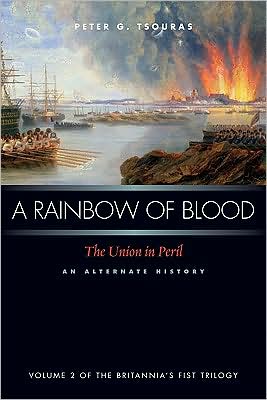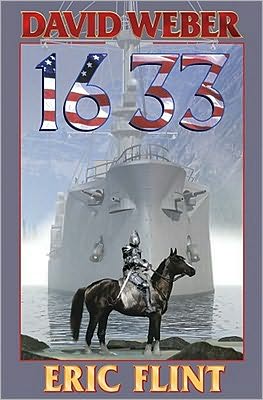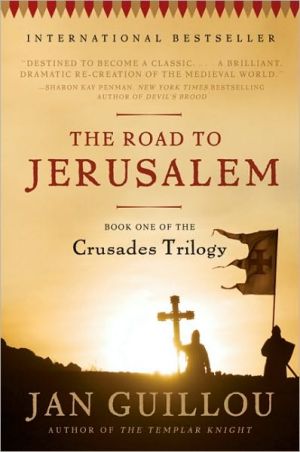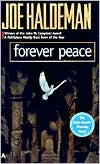Agincourt
"The greatest writer of historical adventures today" (Washington Post) tackles his richest, most thrilling subject yet: the heroic tale of Agincourt.\ \ One of the most dramatic victories in British history, the battle of Agincourt—immortalized by Shakespeare in Henry V—pitted undermanned and overwhelmed English forces against a French army determined to keep their crown out of Henry's hands. Here Bernard Cornwell resurrects the legend of the battle and the "band of brothers" who fought on...
Search in google:
"The greatest writer of historical adventures today" (Washington Post) tackles his richest, most thrilling subject yet the heroic tale of Agincourt. Young Nicholas Hook is dogged by a cursed past haunted by what he has failed to do and banished for what he has done. He is driven to fight as a mercenary archer in France, where he discovers two things he can love: his instincts as a fighting man, and a girl in trouble. Together they survive the notorius massacre at Soissons, and, with no options left, head home to England. Discovered by the young King of England Henry V himself Hook takes up the longbow again, returning to France as part of the superb army Henry leads in his quest to claim the French crown. But after the English campaign suffers devastating early losses, it becomes clear that Hook and his fellow archers are their king's last resort in a desparate fight against an enemy more daunting than they could ever imagined. One of the most dramatic victories in British history, the battle of Agincourt pitted undermanned and overwhelmed English forces against a French army determined to keep their crown out of Henry's hands. This exhilarating story of survival and slaughter is at once a brillant work of history and a triumph of imagination Bernard Cornwell at his best.The Washington Post - Diana GabaldonThis is a book for those who like nonstop action, preferably drenched in blood, mud and bad language…Cornwell's historical accuracy is excellent throughout, and he gracefully acknowledges his sources in an interesting "Historical Note" at the end. Agincourt isn't a glorious battle; you see every mud-clogged, blood-soaked inch of the field and smell the sweat and excrement of the archers, knights and foot soldiers who fought for those hard-won inches. But when the fighting's over, you're left with a sense of awe at what was done there, and admiration for the men who did it.
Agincourt\ Chapter One\ The River Aisne swirled slow through a wide valley edged with low wooded hills. It was spring and the new leaves were a startling green. Long weeds swayed in the river where it looped around the city of Soissons.\ The city had walls, a cathedral, and a castle. It was a fortress that guarded the Flanders road, which led north from Paris, and now it was held by the enemies of France. The garrison wore the jagged red cross of Burgundy and above the castle flew the gaudy flag of Burgundy's duke, a flag that quartered the royal arms of France with blue and yellow stripes, all of it badged with a rampant lion.\ The rampant lion was at war with the lilies of France, and Nicholas Hook understood none of it. "You don't need to understand it," Henry of Calais had told him in London, "on account of it not being your goddam business. It's the goddam French falling out amongst themselves, that's all you need to know, and one side is paying us money to fight, and I hire archers and I send them to kill whoever they're told to kill. Can you shoot?"\ "I can shoot."\ "We'll see, won't we?"\ Nicholas Hook could shoot, and so he was in Soissons, beneath the flag with its stripes, lion, and lilies. He had no idea where Burgundy was, he knew only that it had a duke called John the Fearless, and that the duke was first cousin to the King of France.\ "And he's mad, the French king is," Henry of Calais had told Hook in England. "He's mad as a spavined polecat, the stupid bastard thinks he's made of glass. He's frightened that someone will give him a smart tap and he'll break into a thousand pieces. The truth is he's got turnips forbrains, he does, and he's fighting against the duke who isn't mad. He's got brains for brains."\ "Why are they fighting?" Hook had asked.\ "How in God's name would I know? Or care? What I care about, son, is that the duke's money comes from the bankers. There." He had slapped some silver on the tavern table. Earlier that day Hook had gone to the Spital Fields beyond London's Bishop's Gate and there he had loosed sixteen arrows at a straw-filled sack hanging from a dead tree a hundred and fifty paces away. He had loosed very fast, scarce time for a man to count to five between each shaft, and twelve of his sixteen arrows had slashed into the sack while the other four had just grazed it. "You'll do," Henry of Calais had said grudgingly when he was told of the feat.\ The silver went before Hook had left London. He had never been so lonely or so far from his home village and so his coins went on ale, tavern whores, and on a pair of tall boots that fell apart long before he reached Soissons. He had seen the sea for the first time on that journey, and he had scarce believed what he saw, and he still sometimes tried to remember what it looked like. He imagined a lake in his head, only a lake that never ended and was angrier than any water he had ever seen before. He had traveled with twelve other archers and they had been met in Calais by a dozen men-at-arms who wore the livery of Burgundy and Hook remembered thinking they must be English because the yellow lilies on their coats were like those he had seen on the king's men in London, but these men-at-arms spoke a strange tongue that neither Hook nor his companions understood. After that they had walked all the way to Soissons because there was no money to buy the horses that every archer expected to receive from his lord in England. Two horse-drawn carts had accompanied their march, the carts loaded with spare bowstaves and thick, rattling sheaves of arrows.\ They were a strange group of archers. Some were old men, a few limped from ancient wounds, and most were drunkards.\ "I scrape the barrel," Henry of Calais had told Hook before they had left England, "but you look fresh, boy. So what did you do wrong?"\ "Wrong?"\ "You're here, aren't you? Are you outlaw?"\ Hook nodded. "I think so."\ "Think so! You either are or you aren't. So what did you do wrong?"\ "I hit a priest."\ "You did?" Henry, a stout man with a bitter, closed face and a bald head, had looked interested for a moment, then shrugged. "You want to be careful about the church these days, boy. The black crows are in a burning mood. So is the king. Tough little bastard, our Henry. Have you ever seen him?"\ "Once," Hook said.\ "See that scar on his face? Took an arrow there, smack in the cheek and it didn't kill him! And ever since he's been convinced that God is his best friend and now he's set on burning God's enemies. Right, tomorrow you're going to help fetch arrows from the Tower, then you'll sail to Calais."\ And so Nicholas Hook, outlaw and archer, had traveled to Soissons where he wore the jagged red cross of Burgundy and walked the high city wall. He was part of an English contingent hired by the Duke of Burgundy and commanded by a supercilious man-at-arms named Sir Roger Pallaire. Hook rarely saw Pallaire, taking his orders instead from a centenar named Smithson who spent his time in a tavern called L'Oie, the Goose. "They all hate us," Smithson had greeted his newest troops, "so don't walk the city at night on your own. Not unless you want a knife in your back."\ The garrison was Burgundian, but the citizens of Soissons were loyal to their imbecile king, Charles VI of France. Hook, even after three months in the fortress-city, still did not understand why the Burgundians and the French so loathed each other, for they seemed indistinguishable to him. They spoke the same language and, he was told, the Duke of Burgundy was not only the mad king's cousin, but also father-in-law to the French dauphin. "Family quarrel, lad," John Wilkinson told him, "worst kind of quarrel there is."\ Agincourt. Copyright © by Bernard Cornwell. Reprinted by permission of HarperCollins Publishers, Inc. All rights reserved. Available now wherever books are sold.
\ Diana GabaldonThis is a book for those who like nonstop action, preferably drenched in blood, mud and bad language…Cornwell's historical accuracy is excellent throughout, and he gracefully acknowledges his sources in an interesting "Historical Note" at the end. Agincourt isn't a glorious battle; you see every mud-clogged, blood-soaked inch of the field and smell the sweat and excrement of the archers, knights and foot soldiers who fought for those hard-won inches. But when the fighting's over, you're left with a sense of awe at what was done there, and admiration for the men who did it.\ —The Washington Post\ \ \ \ \ Publishers WeeklyA literary veteran of the Napoleonic Wars and the U.S. Civil War, Cornwell returns to the Hundred Years War era in this action-packed if slightly melodramatic epic about King Henry V and the Battle of Agincourt in 1415. Nicholas Hook, an English forester, is on the run after interfering with a rapist priest and ends up a mercenary defender at Soissons, where he saves a young and beautiful novitiate, Melisande. With his French prize in tow, he returns to England and signs on with Henry's army as an archer. Back on French soil, he fights and slogs his way to Agincourt, where 6,000 Englishmen confront 30,000 French soldiers. Hearing the voice of St. Crispinian whispering to him in times of personal crisis, Hook has his hands full with the French and defending himself from the vengeance-seeking rapist priest and Melisande's father. The crisply rendered battle scenes are adrenaline rushes of blood, thunder and clashing swords that transport the reader back to the early 15th century. Unfortunately, Hook's Hollywood-ready construction undercuts the "you are there" feeling of Cornwell's otherwise vivid recreation of Henry V's greatest military triumph. (Jan.)\ Copyright © Reed Business Information, a division of Reed Elsevier Inc. All rights reserved.\ \ \ Library JournalCornwell, best known for historical series like the Sharpe novels and the "Saxon Tales," has written a stand-alone work that focuses on one of England's greatest military victories, the Battle of Agincourt in 1415, as seen by archer Nicholas Hook. Hook joins the army to avoid being hanged after attacking a priest and is immediately sent to defend the English garrison at the besieged French town of Soissons. During the carnage following the town's surrender, he rescues a Frenchwoman, Melisande, from marauding troops. The romance that develops between them adds an element of tension to the narrative because Hook must protect her from an array of dangers. The British army resumes battle with a siege of Harfleur and then sets out for Calais but is forced into a seemingly hopeless showdown with French troops near the town of Agincourt. Cornwell bases the final battle scene on the widely held belief that the English were greatly outnumbered by the French and comes up with a plausible scenario for an English victory. Though 464 pages long, this novel never feels inflated or meandering and perfectly captures the spirit of 15th-century Europe. Most impressive, Cornwell has produced a military adventure with a subtle but powerful antiwar tone, filled with dramatic battle scenes that unsparingly convey the horrors and futility of the Agincourt campaign. Recommended for all libraries.\ —Douglas Southard\ \ \ \ \ \ Kirkus ReviewsAn archer on the lam from a bum rap in his county ships out with Henry V to test his shooting and slashing skills at one of the bloodiest but most glorious battles in history. Cornwell (Sword Song, 2008, etc.), having dealt in gorgeous detail with the role of the longbow at Crecy in his three-volume Archer series, effectively laid the groundwork for this single-volume assessment of the great victory at Agincourt. The hero this time is Nicholas Hood, easily the best archer in his neighborhood, but stuck like his younger brother at the bottom of the local food chain even though he is probably the bastard child of the local squire Lord Slayton. The Hood family was cursed by the evil Perrill family, and the two clans have been feuding for generations. The Perrills, with assistance from dastardly priest Sir Martin, frame the Hooks with a capital crime, forcing Nicholas to leave for London, then ship out for France in the King's forces. Across the channel he is witness to slaughter and treachery at the siege of Soissons, where, following emergency prayers to St. Crispin and St. Crispinian, he acquires their saintly protection and advice as well as the companionship of lovely local lass Melisande, bastard daughter of one of the greatest French warriors. There is barely time to rest before Nicholas and Melisande ship out again, this time with the King and his expeditionary force. Prince Hal hopes to reclaim his French crown, but his strategy runs afoul of steely resistance by the defenders of the Seine port Harfleur. What was to have been a walkover turns into a long siege in which dysentery claims as many victims as battle. The finally victorious but much depleted English force, instead ofcalling it a day, heads under Henry toward Calais, a march that draws the attention of the vastly larger French army and finally leads to battle in the sodden fields outside the village the French call Azincourt. The usual splendid stuff from the master of historical battle. There's a bit of deus ex machina, but it's tolerable.\ \
